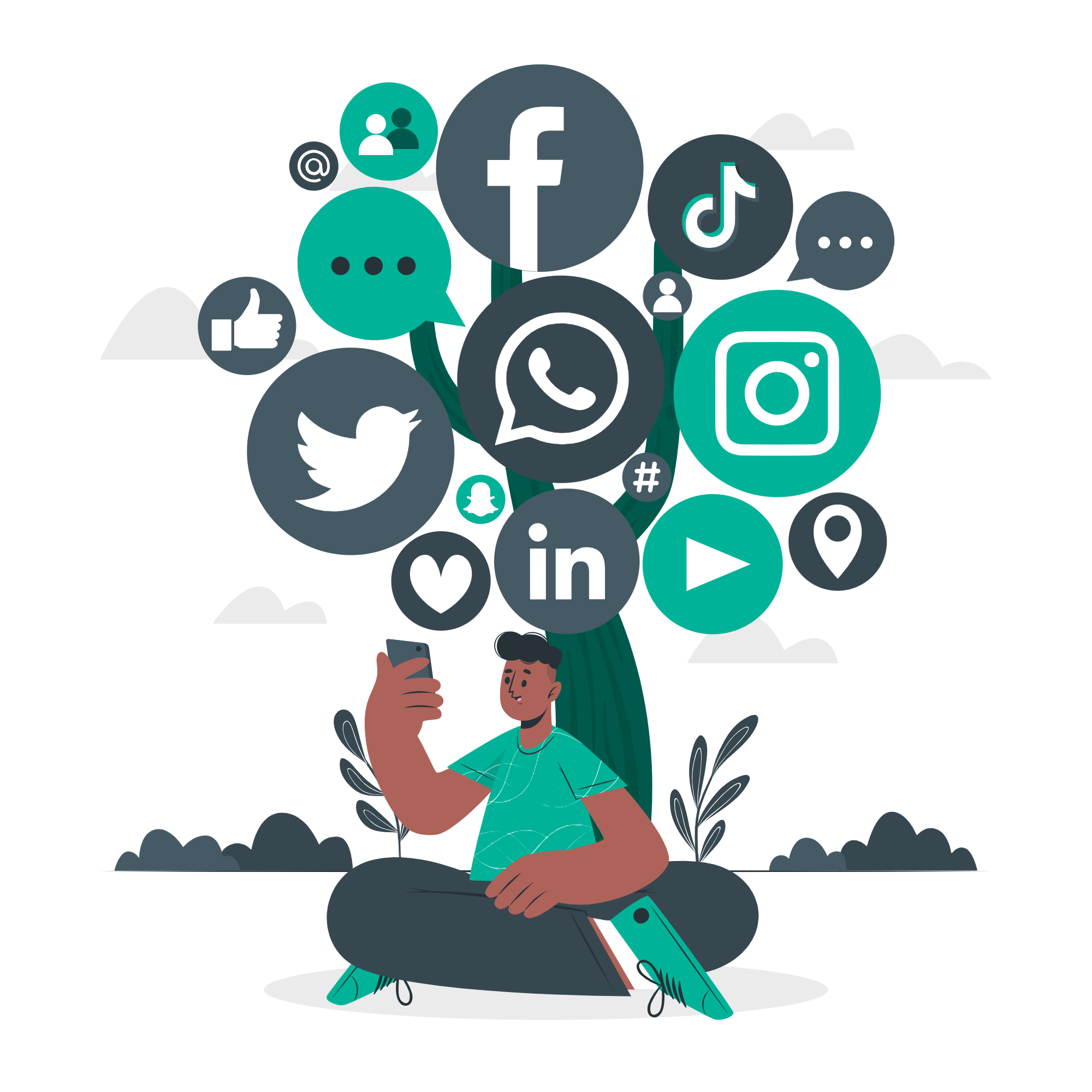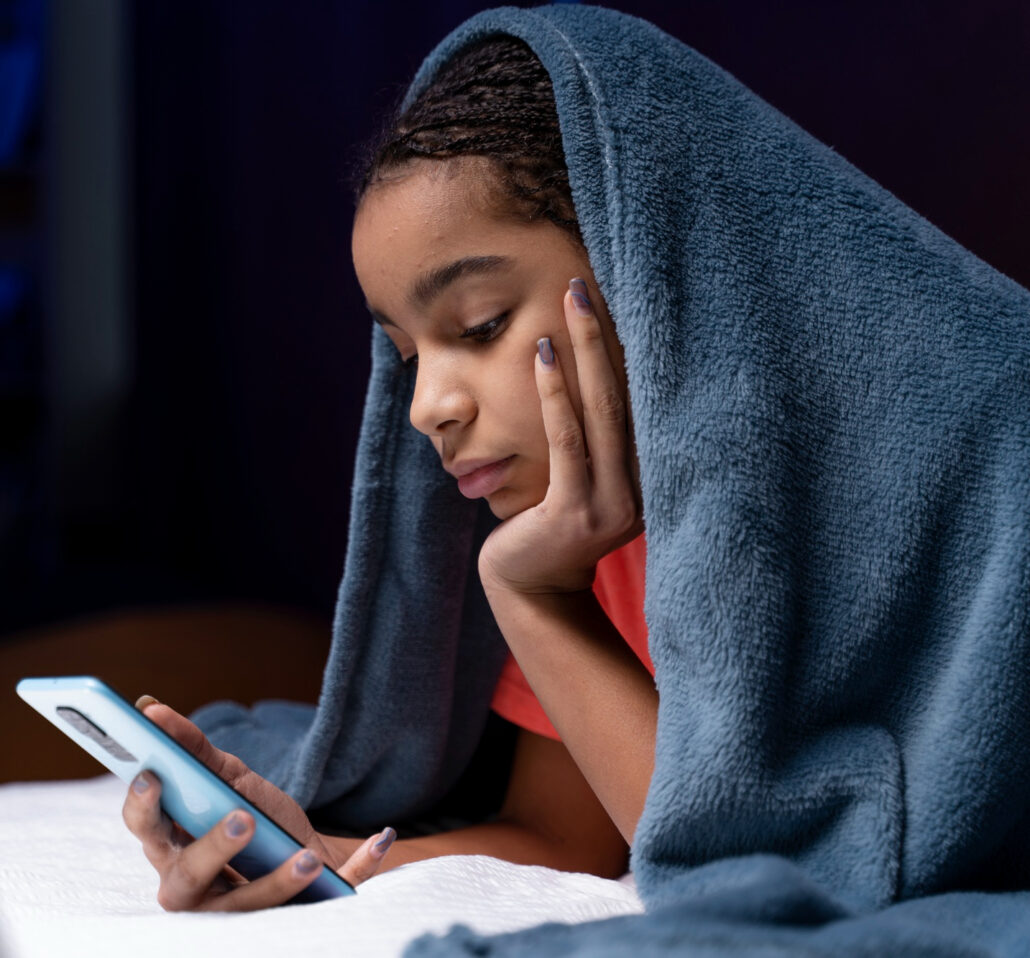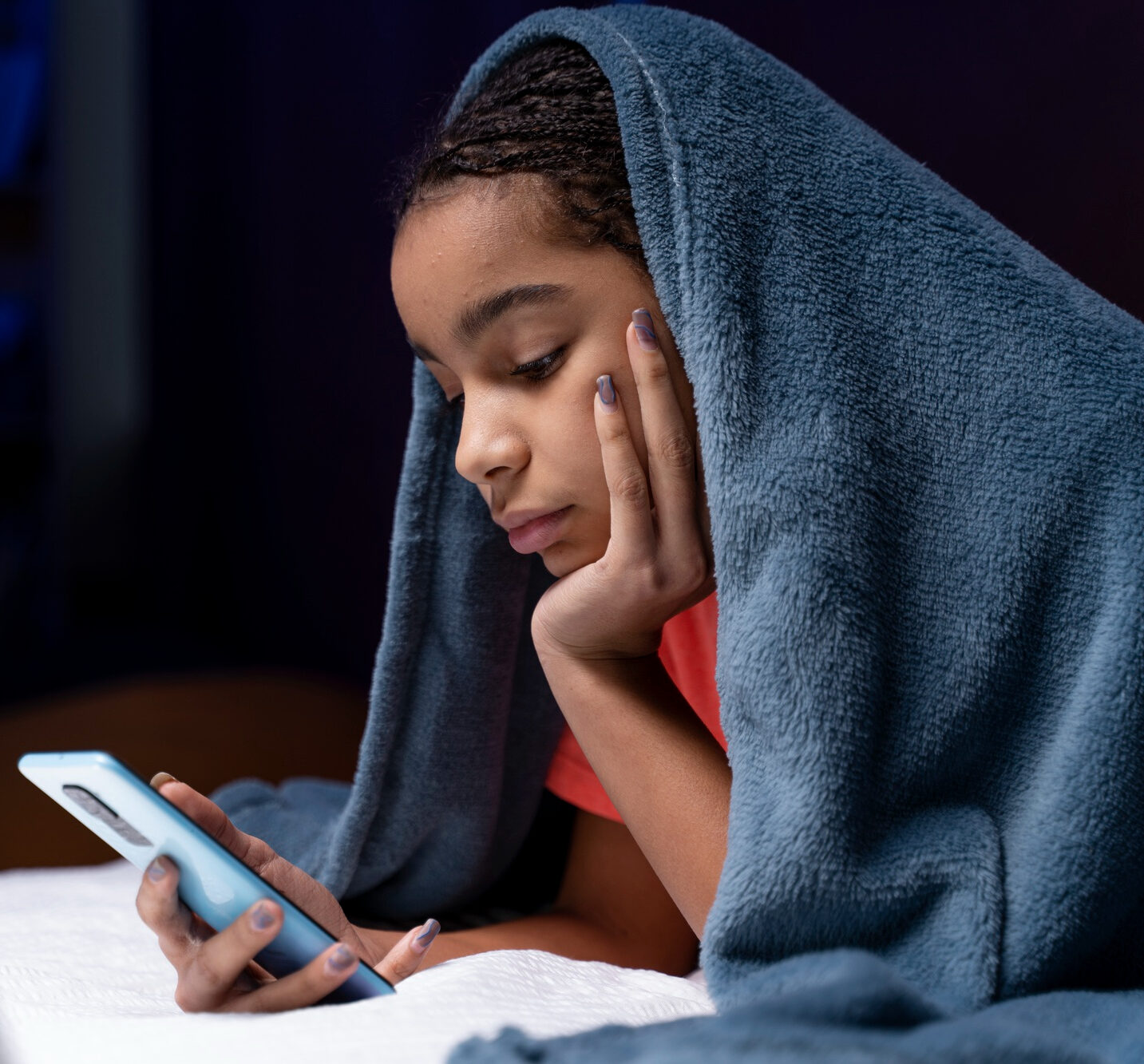Social Media and Health Study
Researchers at Rhode Island Hospital and Brown University Health are conducting a remote research study to learn more about the different ways in which social media use may affect teens’ mental health.

Fast Facts

13-16 Years Old With Feelings of Anxiety or Depression

Access to a Computer At Home

Compensation Provided

Conducted Nationwide
Study Background
How does social media use affect teen mental health?
In this study, we’ll recruit teens from all over the United States to help us learn more about the different ways social media use can affect adolescents’ mental health.
Teens will participate in a total of four virtual sessions over 18 months. In these sessions, they’ll answer survey questions about their social media use, relationships, and mental health, and complete an interview while they view their social media pages. Additionally, in the second session, they will participate in a social media computer task while the web camera tracks their eye movements. Teens will be compensated up to $225 worth of Amazon gift cards to thank them for their time and involvement in the study.

Study Background
How does social media use affect teen mental health?

In this study, we’ll recruit teens from all over the United States to help us learn more about the different ways social media use can affect adolescents’ mental health.
Teens will participate in a total of four virtual sessions over 18 months. In these sessions, they’ll answer survey questions about their social media use, relationships, and mental health, and complete an interview while they view their social media pages. Additionally, in the second session, they will participate in a social media computer task while the web camera tracks their eye movements. Teens will be compensated up to $225 worth of Amazon gift cards to thank them for their time and involvement in the study.

Additional Information
In this research study, we are trying to learn whether there are specific social media experiences teens engage in that may affect their risk for internalizing symptoms (anxiety and depression), using eye tracking technology. We are also trying to understand whether teens’ beliefs about social media affect how they use social media and their symptoms.
Your teen may qualify for the study if they meet the following criteria.
Inclusion Criteria:
- 13-16 years old
- Access to a desktop or laptop computer at home
- Experiencing feelings of anxiety or depression
- Feels sad, unhappy
- Feels hopeless
- Is down on him or herself
- Worries a lot
- Seems to be having less fun
If your teen is eligible, they will participate in a total of 4 virtual sessions (via video calls) over 18 months. Each session will be 60-90 minutes long. You, the parent, will join these video calls for a few minutes at the beginning and end of each session, and will need to be home and accessible during the rest of the session, but will not need to participate.
During all sessions, your teen will complete a series of questionnaires, including questions about demographic information, symptoms of depression and anxiety, peer and social relationships, and social media use. They will also participate in an interview about their social media use, which will involve looking at their phone and describing their experiences to an interviewer.
During the second session, they will also participate in a social media computer task, in which they may experience both positive and negative interactions with virtual peers. During this task, web-based eye tracking will measure where their eyes are looking on the screen.
Participating teens can receive up to $225 worth of Amazon gift cards for completing the entire study.
There is no cost for your teen to participate in our research study.
